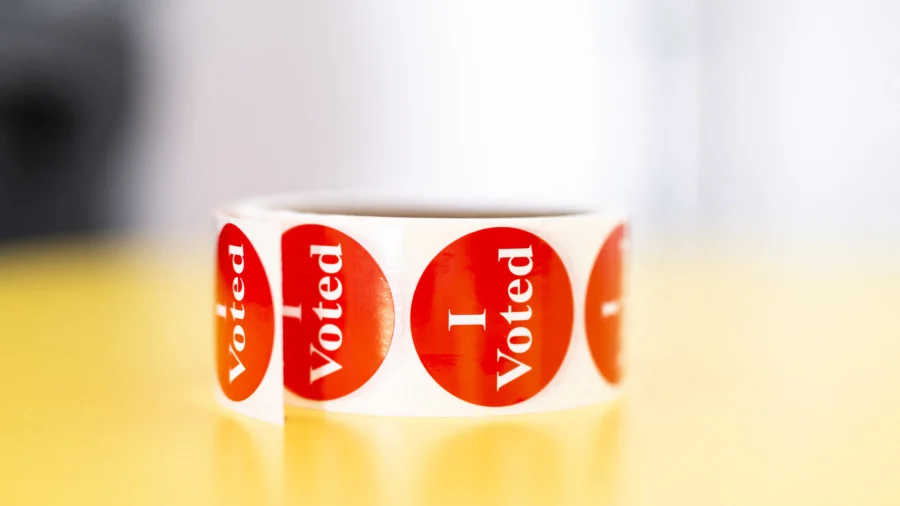One vote can make a difference.
That was the takeaway from a nationwide survey by the Public Interest Legal Foundation (PILF) that found 29 elections ended in ties and another 18 were decided by a single vote thus far in 2024.
“If people ever think their votes don’t matter, I hope they remember these tied elections,” said PILF President J. Christian Adams in an Oct. 9 press release. “Every single vote matters.”
“Just one vote could determine who wins power. Everyone eligible should register and vote this November.”
This year, ties or single-vote victory margins occurred in 24 states, with the nation experiencing more instances than in 2023, according to the survey.
The closeness of these elections illustrates “every vote and every mistake matter,” PILF said in a statement.
Since 2022, when PILF began tracking close elections across America, it has discovered 635 tied elections and 173 that were decided by a single vote.
PILF researchers stated that those numbers do not represent all the incidents out there, and they do not include the thousands of close elections decided by two votes or more.
Lauren Bowman Bis, PILF’s director of communications, told The Epoch Times there was even more cause for concern given the possibility of noncitizens voting in American elections.
“An illegally cast vote by an alien could have determined the outcomes of these tied and close elections,” she said. “These elections are proof that every vote matters.
“We should not let illegally cast votes by aliens determine our elections.”
Examples From PILF’s 2024 Findings
This year, the primary in California’s 16th Congressional District ended in a tie, with each candidate receiving exactly 30,249 votes for the second-place position in a three-person race.
The tie was resolved by a recount which gave one of the candidates for second-place the victory by five votes.
California runs a “jungle” primary in which the top two finishers, regardless of party, advance to run against each other in the general election.

A tie in an election for county sheriff in Oklahoma was resolved by drawing the winning candidate’s name from a bucket.
In Tennessee, a tied election for county school board was broken by a single provisional ballot originally cast by a voter who showed up to vote earlier on Election Day without the required identification.
The voter returned with the proper ID between the time the vote count had concluded and the start of the certification process, which would have led to a tie-breaking procedure.
The individual’s provisional ballot was then accepted, giving the victory to his candidate of choice.
It took a post-election lawsuit over inconsistencies on one candidate’s nominating petition to finally resolve a 100–100 vote tie in a GOP primary race for township supervisor in Michigan.
In another close GOP primary battle in Michigan, the incumbent township treasurer seemed to have defeated a challenger 281 to 280.
Things changed when a local resident appeared claiming to have been wrongfully denied an opportunity to vote earlier that day for not living in the township.
An electronic poll book notification was found to have been in error and the individual was allowed to vote.
He voted for the challenger, thereby, tying the race 281–281.
Local officials determined to resolve the tie by conducting a special mail-in election.
Michigan Secretary of State Jocelyn Benson intervened by striking from the record the single complainant’s vote, thereby, reverting the outcome to 281–280.
Benson explained that she disallowed the vote and the special election because of the legal requirement that the number of vote denial complainants must exceed the margin of victory in the race before a special election could be called.
After Benson’s intervention, the challenger requested a hand recount, which found one more vote for the incumbent, who was declared the winner 282–280.
Missouri leads the nation in 2024 with eight close elections resulting in ties or being decided by one vote, followed by Michigan with five, and New York, Colorado, Oklahoma, and Texas with three each.
According to its website, PILF is “the nation’s only public interest law firm dedicated wholly to election integrity.” Its mission is “to assist states and others to aid the cause of election integrity and fight against lawlessness in American elections.”
From The Epoch Times

